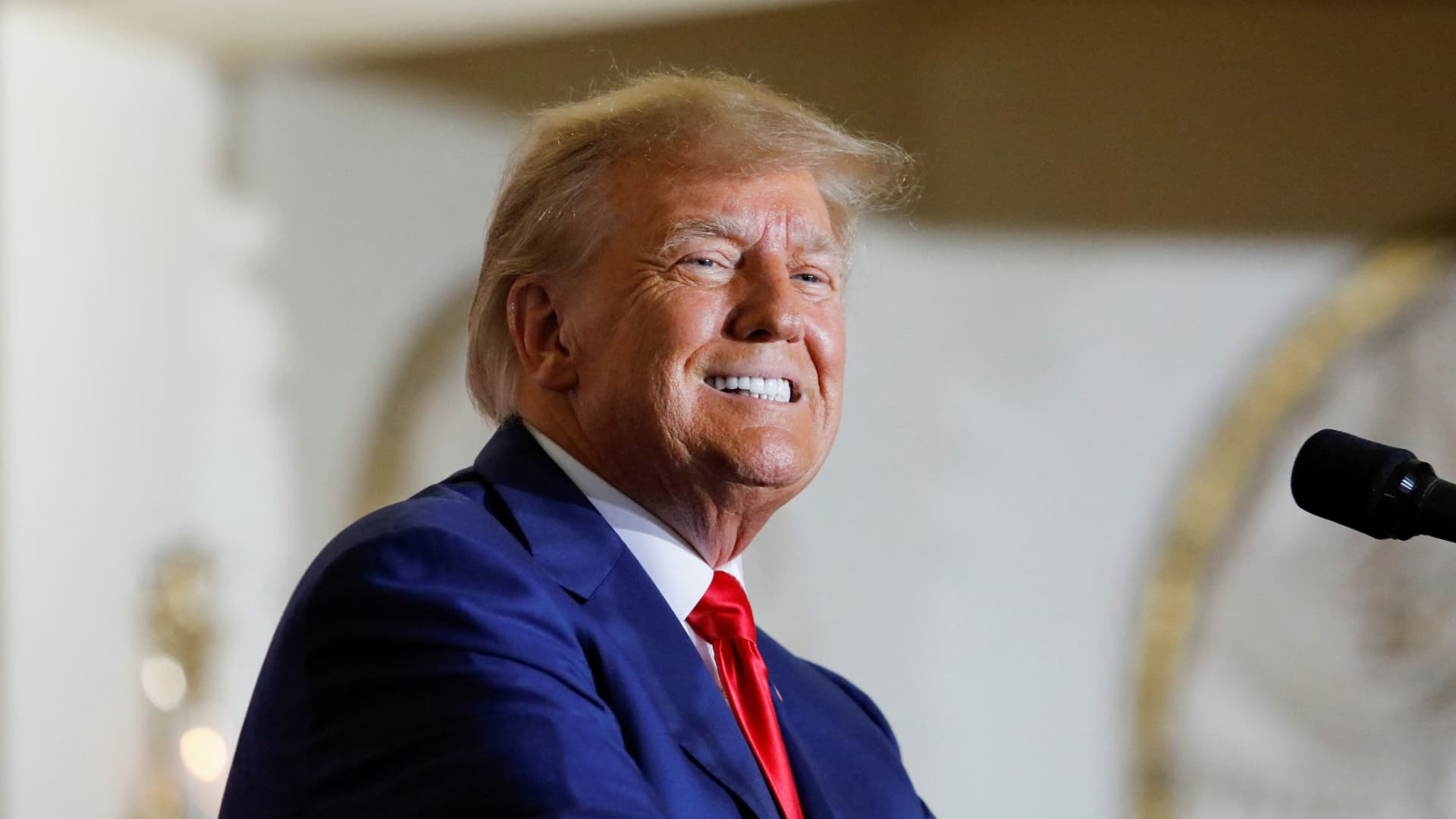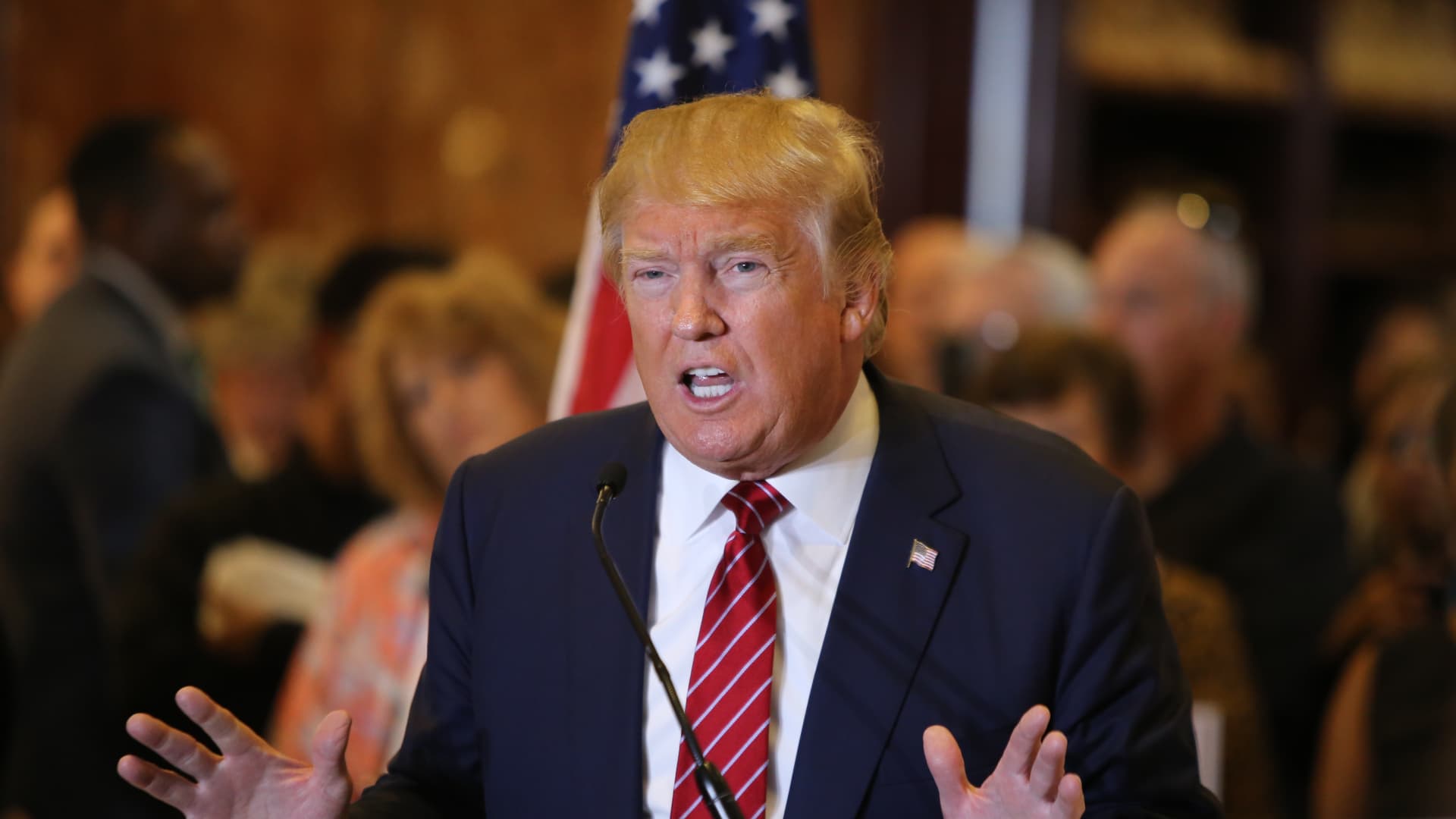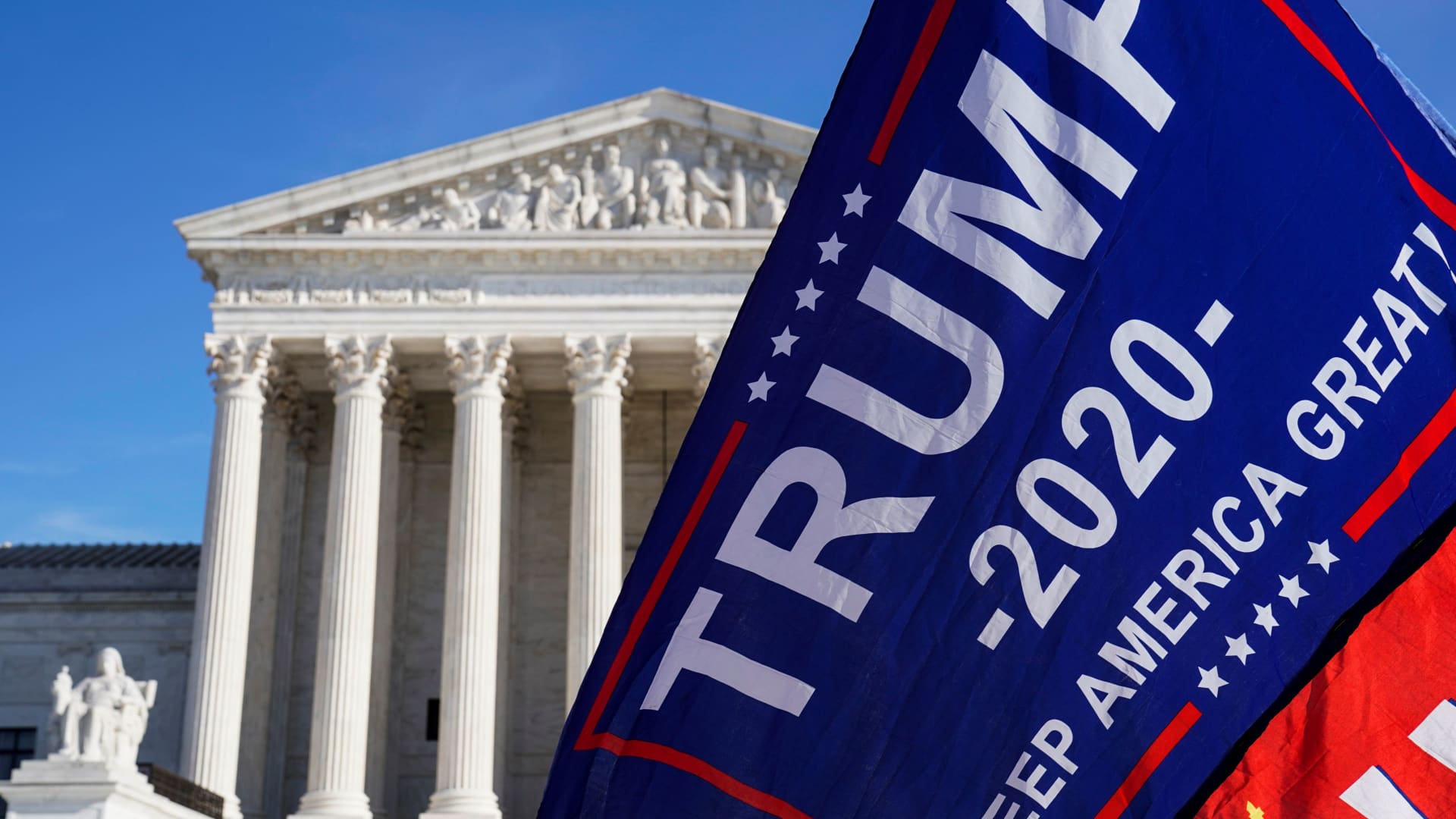U.S. President Joe Biden delivers a speech during a campaign rally on abortion rights at the Hylton Performing Arts Center in Manassas, Virginia, USA, on January 23, 2024.
Evelyn Hockstein | Reuters
President Joe Biden’s 2025 funding proposal, set to be released Monday, will repackage his tax hike proposals on billionaires and corporations as well as many other demands from his 2024 budget, which is still being negotiated on Capitol Hill halfway through the fiscal year.
Like all presidential budgets, Biden’s 2025 plan is more of a wish list than a policy document. With the president likely facing a general election rematch against Donald Trump this November, his budget is also a reflection of the Biden campaign’s economic platform.
According to the White House, the budget aims to reduce the federal deficit by $3 trillion over the next decade, primarily by imposing a minimum tax rate of 25% on the unrealized income of the richest households and by redesigning the Corporate tax legislation.
Biden will also seek to strengthen Medicare and Social Security by, among other things, relying on new federal bargaining powers for Medicare prescription drugs and seeking further savings in housing, health insurance and more.
Biden previewed many of the themes of his budget proposal in his State of the Union address on Thursday.
“Do you really think that the wealthy and large corporations need another $2 trillion in tax breaks? he said in a fiery, partisan speech at the Capitol.
Biden’s populist, progressive funding plan to tax the rich is not a novel proposal from his White House.
On the contrary, since taking office in 2021, Biden and Democrats in Congress have repeatedly proposed raising taxes on the very richest to increase revenue. But even with Democrats controlling both chambers of Congress, the idea made little progress.
After Republicans won the majority in the House of Representatives in 2023, tax plans for billionaires were put on hold indefinitely.
House Republicans tried to forestall Biden’s budget proposal last week by passing their own 2025 budget resolution in a caucus vote. This proposal would aim to reduce the ballooning federal deficit by about $14 trillion over the next decade, including by eliminating Biden’s landmark Inflation Reduction Act, which has enabled massive investments in clean energy and the green economy.
The two competing budget proposals are no surprise in a deeply divided Washington, where compromise was a particularly rare commodity in the 2024 fiscal year.
Back-and-forth disagreements in Congress have left lawmakers still unable to agree on a permanent budget six months into the fiscal year.
Over the last six months, bitter disputes in Congress led to several near-government shutdowns that cost former Republican House Speaker Kevin McCarthy his job.
U.S. House Speaker Kevin McCarthy, R-Calif., responds to a reporter’s question as he arrives for a House Republican conference session where they are expected to consider an attempt by Rep. Matt Gaetz, R-Florida , discuss ousting him from the House speakership at the U.S. Capitol in Washington, October 3, 2023.
Jonathan Ernst | Reuters
Meanwhile, the government had kept the lights on with temporary spending laws.
Finally, in late February, lawmakers agreed to a $460 billion deal to fund half of the government for the remainder of the fiscal year. Funding for the other half must be paid by March 22 or the government will be partially shut down.
Despite this dysfunction, Biden has not watered down any part of his progressive 2025 budget proposals, although that might have made them easier for the polarized Congress to swallow.
This year, the budget also represents Biden’s economic foundation for his re-election campaign. As the president continues his re-election campaign, there are no signs of a slowdown in his pressure campaign against wealthy interests.
“Republicans will cut Social Security and give more tax cuts to the rich,” Biden said in his State of the Union address on Thursday. “I will protect and strengthen Social Security and make sure the rich pay their fair share!”
However, recent polls suggest voter sentiment toward Biden’s economy may be starting to brighten after months of dismal approval ratings.
In a February Wall Street Journal poll, Biden received his best economic rating so far in the election campaign. Forty percent of voters approved of his handling of the economy, an increase of four percentage points from the same question in December.
Still, Biden needs to catch up to keep up with voters’ perceptions of Trump’s economy.
Former U.S. President and 2024 presidential candidate Donald Trump arrives to speak during a “Get Out the Vote” rally at the Coliseum Complex in Greensboro, North Carolina on March 2, 2024.
Ryan Collerd | Afp | Getty Images
In a CBS/YouGov poll also conducted in February, 55% of poll respondents said Biden’s policies would make prices more expensive, while just 34% said the same about Trump’s policies.
Meanwhile, Biden’s re-election campaign is working tirelessly to convince voters that the rise in the cost of living after the pandemic is actually simply a product of unfair corporate pricing tactics, the same ones that the Biden administration has been cracking down on over the past year.
Last week, Biden announced the creation of a Strike Force Against Unfair and Illegal Prices, a group co-led by the Federal Trade Commission and the Justice Department. The aim is to put pressure on companies to lower prices.
“President Biden is fed up with corporate practices that unfairly increase costs for consumers,” Lael Brainard, director of the National Economic Council, told reporters last week. “And he’s taking action.”
Source link
2024-03-11 09:00:01
www.cnbc.com














